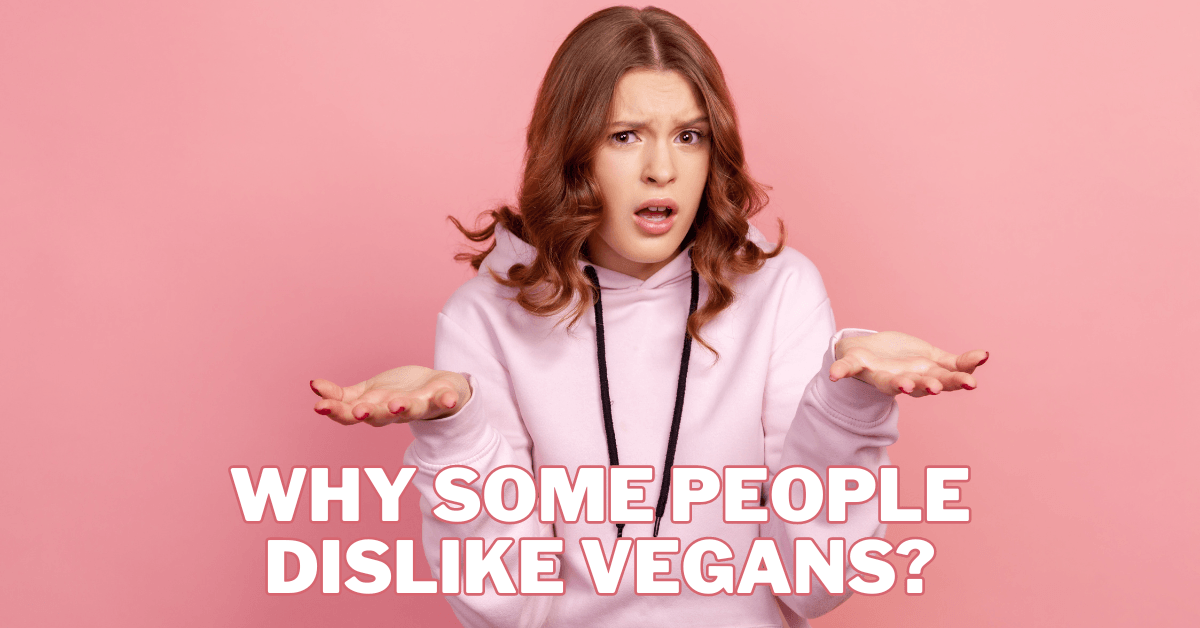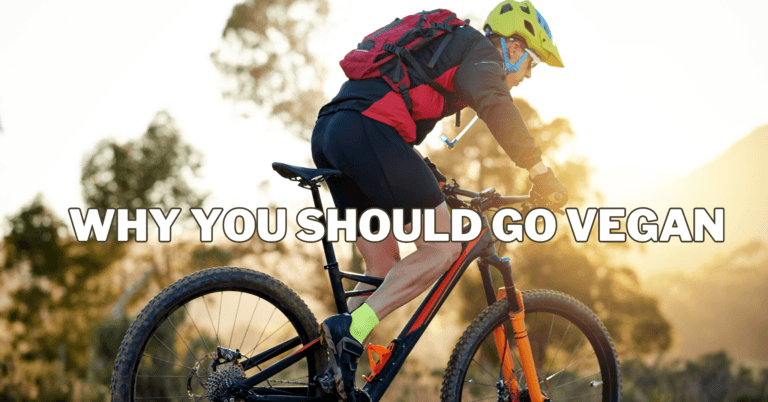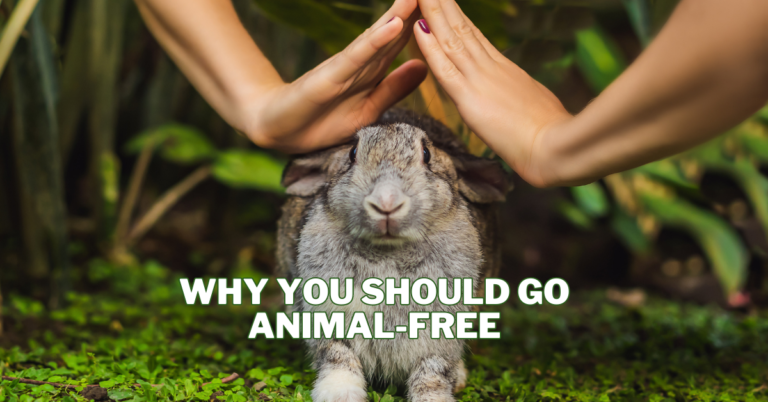Why Some People Dislike Vegans
Why Some People Dislike Vegans?
A growing number of people are embracing plant-based diets for various reasons, such as their health, the environment, and animal welfare, and veganism has received a lot of attention in recent years.
While the vegan movement continues to grow, so does a perplexing phenomenon: the apparent disdain or mistrust directed at vegans.
From memes and jokes to heated debates and social media spats, the question arises: Why do people hate vegans?
This article delves into the complex web of factors contributing to the perceived animosity towards vegans, aiming to shed light on the root causes of this phenomenon and promote a more understanding and compassionate dialogue between different dietary choices.
Misconceptions About Veganism
Misconceptions about veganism often lead to misunderstandings and contribute to negative attitudes towards vegans. One prevalent stereotype is the perception that all vegans are judgmental or preachy about their dietary choices.
While some vegans may advocate passionately for their lifestyle, it's essential to recognize that this generalization doesn't apply to everyone who follows a plant-based diet.
The misconception of vegans as judgmental or preachy may arise from the visibility of vocal vegan activists or influencers in the media and online.
These individuals may be passionate advocates for animal rights, environmental sustainability, and health, and their enthusiasm can sometimes come across as judgmental to those with differing views.
However, it's crucial to remember that not all vegans fit this mould. Many choose a vegan lifestyle quietly and without imposing their beliefs on others.
In reality, vegans, like any other group, encompass various personalities, beliefs, and approaches to their dietary choices.
Some are more outspoken about their reasons for veganism, while others prefer a quieter, lead-by-example approach.
It's important to engage with individuals personally to understand their motivations and perspectives rather than making sweeping assumptions based on stereotypes.
Dispelling this misconception can help foster a more open and respectful dialogue between vegans and non-vegans, ultimately promoting greater understanding and empathy among all individuals, regardless of their dietary choices.
What Does Vegan Dislike Look Like?
Vegan dislike, like any form of animosity, can manifest in various ways, often rooted in misconceptions, stereotypes, or disagreements regarding dietary choices.
While it's essential to note that not everyone exhibits vegan hate, some individuals may express their negative feelings through words or actions. Uniquely, vegan hate might be characterized by:
1. Online Trolling And Harassment
In the digital age, one unique expression of vegan hate is through online trolling and harassment.
Vegans who share their plant-based journeys or advocacy efforts on social media platforms may encounter derogatory comments, memes, or threats from individuals who vehemently oppose their choices. This virtual hostility can be cyberbullying, body shaming, or derogatory slurs.
2. Vandalism And Destruction
Occasionally, vegan hate can escalate to physical acts of vandalism and destruction. Vegan-owned businesses or restaurants may face property damage or vandalism, such as defacing storefronts with offensive graffiti or smashing windows.
These acts reflect the deep-seated resentment some individuals harbour toward the vegan lifestyle.
3. Public Shaming And Ridicule
Public shaming and ridicule are unique manifestations of vegan hate that can occur in social settings.
Vegans dining with non-vegan friends or family members may experience public humiliation or ridicule for their dietary choices, making gatherings uncomfortable or strained.
4. Exclusion And Isolation
Vegan hate may also lead to exclusion and isolation. In group settings, vegans might be intentionally left out of meal planning or food-related events, creating a sense of isolation or ostracization.
This unique form of exclusion highlights the divisive impact of dietary choices on interpersonal relationships.
5. Employment Discrimination
In some cases, vegan hate can extend to the workplace, resulting in discrimination. Vegans may face difficulties securing or maintaining employment due to prejudice or bias against their dietary preferences, affecting their livelihoods and financial stability.
It's important to recognize that these unique expressions of vegan hate are not representative of everyone's attitudes toward vegans, and many individuals embrace diversity and engage in respectful dialogue.
Addressing misconceptions, fostering empathy, and promoting open communication can help bridge the gap between vegans and non-vegans, ultimately working towards a more harmonious coexistence in diverse dietary choices.
Does Vegaphobia Exist?
While there isn't a widely recognized term like “vegaphobia” in mainstream discourse, the concept of prejudice or discrimination against vegans does exist and is akin to other forms of bias.
This bias can manifest as negative stereotypes, misconceptions, or even hostility towards vegan individuals.
Vegans may encounter challenges and biases in various aspects of their lives, from social interactions to workplace discrimination, rooted in this underlying prejudice.
These biases, although not labelled as “vegaphobia,” reflect a lack of understanding and acceptance of dietary choices that differ from the norm.
Recognizing and addressing such biases is essential for promoting inclusivity and empathy in a diverse society, where individuals make varied dietary choices based on various factors, including health, ethics, and environmental concerns.
While the term “vegaphobia” may not be widely used, the experiences of bias and discrimination some vegans face are real and merit consideration in conversations about tolerance and acceptance of diverse lifestyles and dietary preferences.
Reasons People Dislike Vegans
People may have various reasons for disliking or harbouring negative feelings toward vegans.
While it's important to remember that not everyone holds these sentiments, here are some unique reasons why certain individuals might dislike vegans:

1. Perceived Moral Superiority
Perceived moral superiority is a complex facet of why some individuals harbour negative sentiments towards vegans.
From a unique perspective, it can be likened to a mirror reflecting one's internal conflict or guilt.
When faced with vegans who openly advocate for animal welfare and environmental consciousness, some non-vegans may experience a discomforting dissonance between their actions and values.
To reconcile this dissonance, they may project feelings of moral inferiority onto vegans, perceiving them as self-righteous to shield themselves from confronting the ethical implications of their dietary choices.
This internal struggle can manifest as resentment or defensiveness, creating a barrier to empathetic dialogue.
Understanding this unique aspect of perceived moral superiority sheds light on the intricate psychology behind negative attitudes toward vegans.
It emphasizes the importance of fostering open conversations that encourage self-reflection and empathy among individuals with differing dietary beliefs.
2. Fear Of Judgment
The fear of judgment from vegans can reflect a broader human instinct—the fear of being evaluated and found lacking.
In this context, it's not just a fear of dietary judgment but a fear of moral evaluation. Those who consume animal products may subconsciously recognize the ethical concerns vegans raise and, in turn, feel uneasy about their choices.
This unease can manifest as a fear of being confronted with the moral implications of their dietary habits, often resulting in a defensive response.
Consequently, the fear of judgment from vegans becomes a protective mechanism, shielding one's existing beliefs and behaviours from scrutiny.
Recognizing this dynamic and approaching conversation with empathy and understanding is essential, creating a space where individuals can engage in constructive dialogue without feeling judged or defensive.
Acknowledging and addressing this fear can foster more open and productive discussions about the complex issues surrounding dietary choices and ethics.
3. Inconvenience And Peer Pressure
The inconvenience surrounding veganism can resemble a ripple effect within social circles. Imagine a dinner table as the nexus where culinary traditions and preferences intersect.
Opting for a vegan diet can send ripples across the traditional landscape, requiring adaptations, menu alterations, and, sometimes, extra thought and effort.
In this context, an inconvenience arises from dietary differences and the implicit pressure to adapt.
Friends or family members may perceive the vegan's choice as a subtle nudge towards changing their eating habits, thus perceiving it as peer pressure.
This discomfort can generate frustration, leading to negative sentiments. Addressing this unique inconvenience is essential to fostering understanding within social circles.
By acknowledging that dietary choices stem from personal beliefs and respecting each individual's right to make their own decisions, we can reduce the tension and encourage harmonious gatherings where culinary diversity is celebrated rather than resented.

4. Cultural And Tradition Clashes
Cultural and traditional clashes concerning veganism often resemble a collision between history and the future, where generations of culinary heritage intersect with the evolving landscape of dietary choices.
Picture a family recipe passed down through the ages with cultural significance and flavours that evoke cherished memories.
In such cultures, where meat has been a central pillar of tradition, the emergence of veganism can feel like a seismic shift.
It challenges the status quo and raises questions about preserving time-honoured customs. Some individuals may react negatively to vegans not out of malice but as a defence mechanism against what they perceive as an encroachment on their cultural identity.
This clash underscores the need for sensitivity and patience when discussing veganism within these cultural contexts.
It's an opportunity for dialogue that bridges the gap between respect for heritage and pursuing ethical dietary choices, emphasizing that cultural evolution can coexist with culinary traditions.
5. Belief In Nutritional Myths
Belief in nutritional myths surrounding veganism can be likened to a puzzle of misinformation, where the pieces, although ill-fitting, come together to form a skewed picture of dietary choices.
Imagine a person believing that vegans are perennially deficient in crucial nutrients, painting a portrait of perpetual frailty and deficiency.
This misconception often stems from a need for more understanding about the variety and balance a well-planned vegan diet can offer.
It's like believing a puzzle piece is missing when, in reality, the full picture is obscured by misinformation.
The resulting skepticism and disdain towards vegans can be rooted in genuine concern for their well-being.
Still, this concern often arises from a misconception about the dietary choices of vegans.
Addressing these nutritional myths involves dispelling misinformation and showcasing the abundance of plant-based foods that can provide a well-rounded and nutritious diet.
By reshaping the puzzle with accurate information, we can foster a more informed and empathetic perspective on veganism.
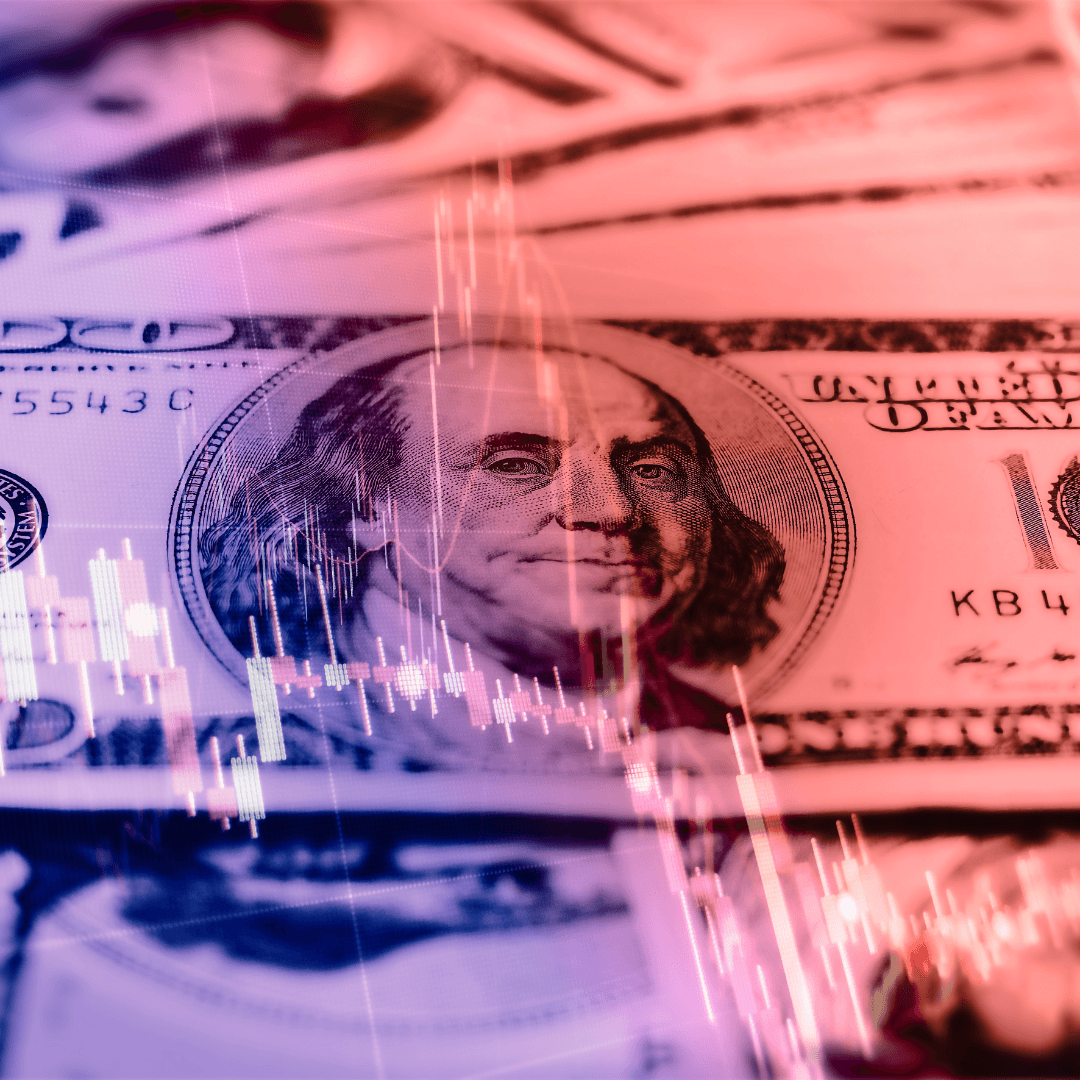
6. Economic Factors
Economic factors in regions where the agricultural industry thrives can be likened to a tug-of-war between tradition and change.
In these areas, the agricultural sector is not just a source of income. It's a cultural cornerstone and a symbol of heritage.
Imagine a rural town where farming practices have been passed down through generations, sustaining communities and shaping their identity.
In this context, the rise of veganism can be perceived as a threat to the economy and a way of life.
Negative campaigns and propaganda against vegan lifestyles can be seen as defensive actions to protect deeply ingrained practices.
It's not merely about financial interests but also about preserving a way of life. Understanding this complex interplay of culture and economics is essential to address resistance to veganism in these regions.
Efforts to diversify agriculture, promote sustainable practices, and support local economies help bridge the gap between economic interests and the pursuit of ethical dietary choices, fostering a more harmonious coexistence between tradition and change.
7. Tribalism And Groupthink
Tribalism and groupthink, deeply ingrained in human psychology, can be compared to the gravitational pull of like-minded individuals forming clusters of shared beliefs and practices.
Picture a campfire around which people gather for warmth and a sense of belonging and security. In this circle, conformity often prevails, and dissenting voices are met with resistance.
Regarding dietary choices, like veganism, those outside the established tribe may face skepticism or rejection.
It's as if the campfire's glow represents the comfort of shared norms, and anyone who questions or disrupts this harmony may be perceived as a threat.
This tribal mentality often discourages open-mindedness and can lead to negative attitudes toward those with differing beliefs or practices.
Understanding this unique aspect of human behaviour highlights the importance of encouraging diversity within tribes, fostering open dialogue, and challenging groupthink to create a more inclusive and empathetic society where differing dietary choices are met with curiosity rather than rejection.

8. Lack Of Understanding
The lack of understanding regarding veganism can be akin to navigating a complex maze without a map.
Imagine a world where the ethical, environmental, and health motivations behind vegan choices are uncharted territory, often obscured by the thick fog of misinformation.
In this scenario, it's not necessarily a conscious rejection of veganism but a journey into the unknown, filled with unanswered questions and unfamiliar terrain.
The negative feelings may stem from discomfort or uncertainty when confronted with something unfamiliar.
It's like encountering a foreign language; it may seem confusing or threatening without comprehension.
Bridging this gap of understanding requires patient education and open dialogue. It's an opportunity to illuminate the path through the maze, offering clarity and dispelling misconceptions.
By demystifying the reasons behind veganism, we can foster empathy and create a more informed and tolerant world where dietary choices are understood rather than feared.
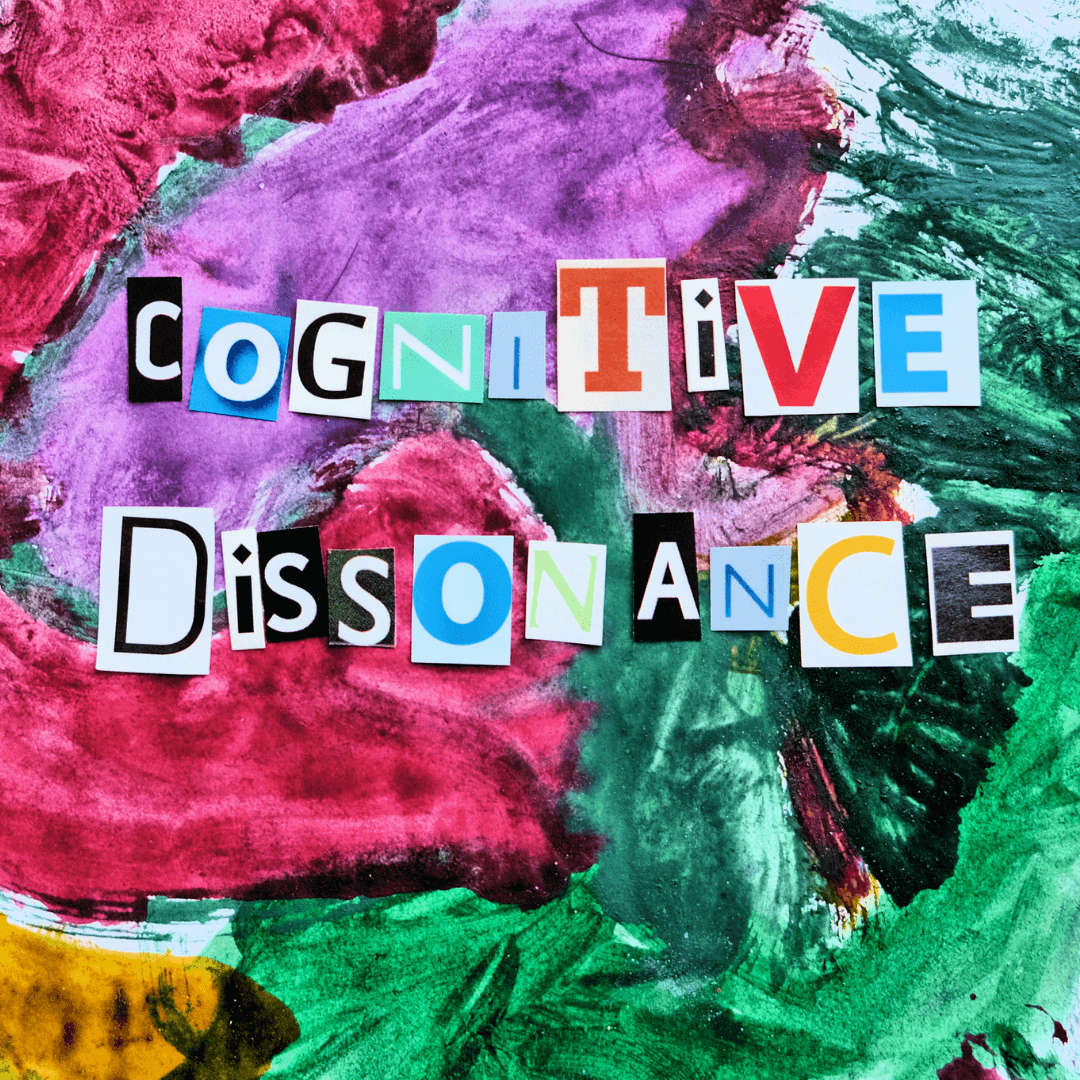
9. Cognitive Dissonance
Cognitive dissonance, likened to the uneasy balancing act of holding conflicting beliefs, can be compared to a rope bridge swaying over a deep chasm.
When individuals encounter information that challenges their existing beliefs or behaviours, it's as if the bridge starts to sway, triggering a discomforting sensation.
Imagine a non-vegan raised on the notion that consuming animal products is an integral part of a healthy diet.
Dissonance arises when confronted with the ethical and environmental arguments of veganism. It's like feeling the tension in the bridge's ropes as it swings between two opposing cliffs.
To resolve this discomfort, individuals may take one of two paths: either reconsider their existing beliefs and adapt or reinforce their current stance by dismissing or resisting the new information.
The negative feelings towards vegans can often stem from this internal struggle, as vegans represent a living reminder of the dissonance.
Acknowledging cognitive dissonance as a natural part of human psychology underscores the importance of approaching conversations about veganism with empathy and patience, providing a stable platform for individuals to cross that metaphorical bridge toward greater understanding and acceptance of diverse dietary choices.
10. Fear Of Change
The fear of change, a powerful force in human psychology, can be likened to an anchor in the familiar waters of routine.
Imagine a person's dietary habits as a well-worn path, comfortably travelled for years. The introduction of veganism can appear as a turbulent sea, threatening to overturn the boat of familiarity.
It's not just a matter of dietary preference but a disruption of the status quo, triggering feelings of uncertainty and insecurity. Like clinging to that familiar path, individuals may cling to their existing dietary choices as a source of stability.
The fear of change, especially concerning something as fundamental as food, can manifest as resistance to veganism. This resistance isn't always a rejection of the idea but a reaction to the perceived upheaval it might bring into one's life.
Understanding this unique aspect of human psychology highlights the importance of approaching discussions about veganism with sensitivity and patience, offering support and guidance rather than abrupt upheaval.
By addressing the fear of change and providing a gentle transition, individuals may be more willing to explore the benefits of a vegan lifestyle without feeling threatened.
Conclusion
In conclusion, the reasons why some individuals harbour negative feelings towards vegans are complex and multifaceted.
These feelings can arise from various sources, including misconceptions, fear of judgment, discomfort with change, cultural clashes, etc.
It's essential to recognize that not everyone dislikes vegans, and many people are open to respectful dialogue and understanding.
To bridge the gap between vegans and non-vegans, it is crucial to foster empathy, dispel myths, and encourage open conversations about the ethical, environmental, and health motivations behind dietary choices.
Doing so can create a more inclusive and tolerant society where diverse dietary decisions are met with curiosity and respect rather than disdain or hatred.
I trust you enjoyed this article about Why Some People Dislike Vegans. Please stay tuned for more blog posts to come shortly. Take care!
JeannetteZ
>>> Please click here to read my Vegan Travel Guides To World Destinations<<<
>>> Want To Learn How To Create Delicious, Cruelty-Free, Healthy AND 100% Vegan Meals? Try These Awesome Vegan Cooking Courses With A Free 7-DAY MEMBERSHIP<<<
Your Opinion Is Important To Me
Do you have thoughts, ideas, or questions? I would love to hear from you. Please leave me your questions, experiences, and remarks about the Why Some People Dislike Vegans article in the comments section below. You can also reach me by email at Jeannette@LivingTheVeganLifestyle.org.
Disclosure
This post may contain affiliate links. I earn from qualifying purchases as an Amazon Associate and other affiliate programs. Please read my full disclosure.
Here are links to some of my favourite articles:
Ultimate Guide To Vegan Food In Rome, Italy

